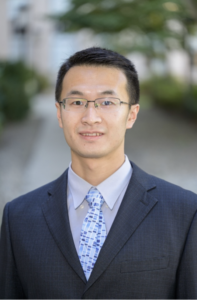Translating single-cell microfluidics from academic lab to global biotech impact
We’re honoured to welcome Dr Carl Hansen, CEO & Co-Founder of AbCellera, for a special research seminar
Events
Calendar

- This event has passed.
Special Seminar: Bioinspired protein-based cancer immunotherapy
February 28, 2024 @ 1:00 pm - 2:00 pm PST
Special Seminar: Bioinspired protein-based cancer immunotherapy
Join Virtually:
Seminar Abstract:
Immunotherapy has revolutionized the field of cancer treatment over the past two decades, though only a small fraction of patients treated will achieve complete remission. As such, new paradigms to overcome resistance to immunotherapies are urgently needed. My research seeks to tailor immunotherapies towards individual differences in immune systems and the inherent heterogeneity of cancer. For this talk, I will share my work on a key therapeutic target against cancer called the STimulator of INterferon Genes (STING) signaling. I first addressed an innate immunodeficiency caused by a loss-of-function mutation of STING protein affecting 20% of the human population, using the cytosolic domain of STING (STINGΔTM) as a functional agonist carrier to activate signaling in STING-deficient cells. Subsequently, I developed a therapeutic cancer vaccine based on this platform by fusing STINGΔTM with immune checkpoint blockade (ICB) nanobodies. The treatment eliminated subcutaneous colon and melanoma tumors in 70-100% of mice and protected all cured mice against rechallenge, while mechanistic studies revealed a distinct STING-mediated anti-tumor immunity driven by robust TH1 polarization and Treg suppression in CD4+ T cells, followed by the collaboration of CD8+ T and NK cells to eliminate tumors. For my independent group, I will continue these prospects in designing protein therapeutics and leveraging the full potential of CD4+ T cells, initially towards personalized cancer immunotherapies and expanding to other monogenic immunodeficiencies and drug delivery challenges in the long run.

Dr. Yanpu He’s Bio:
Yanpu He (he/him/his) is a postdoctoral associate advised by Prof. Angela Belcher in the Department of Biological Engineering at the Massachusetts Institute of Technology (MIT). He completed his Ph.D. in Chemical Engineering at MIT in 2021, co-advised by Profs. Paula Hammond and Darrell Irvine. Prior to that, he graduated from University of Minnesota, Twin Cities in 2015 with dual degrees of B.S. in Chemical Engineering and B.A. in Mathematics. He received MIT Marble Center Cancer Nanomedicine postdoctoral fellowship from 2021-2023 and was named Convergence Scholar at MIT Koch Institute in 2021.
Location:
MSL 102 LT